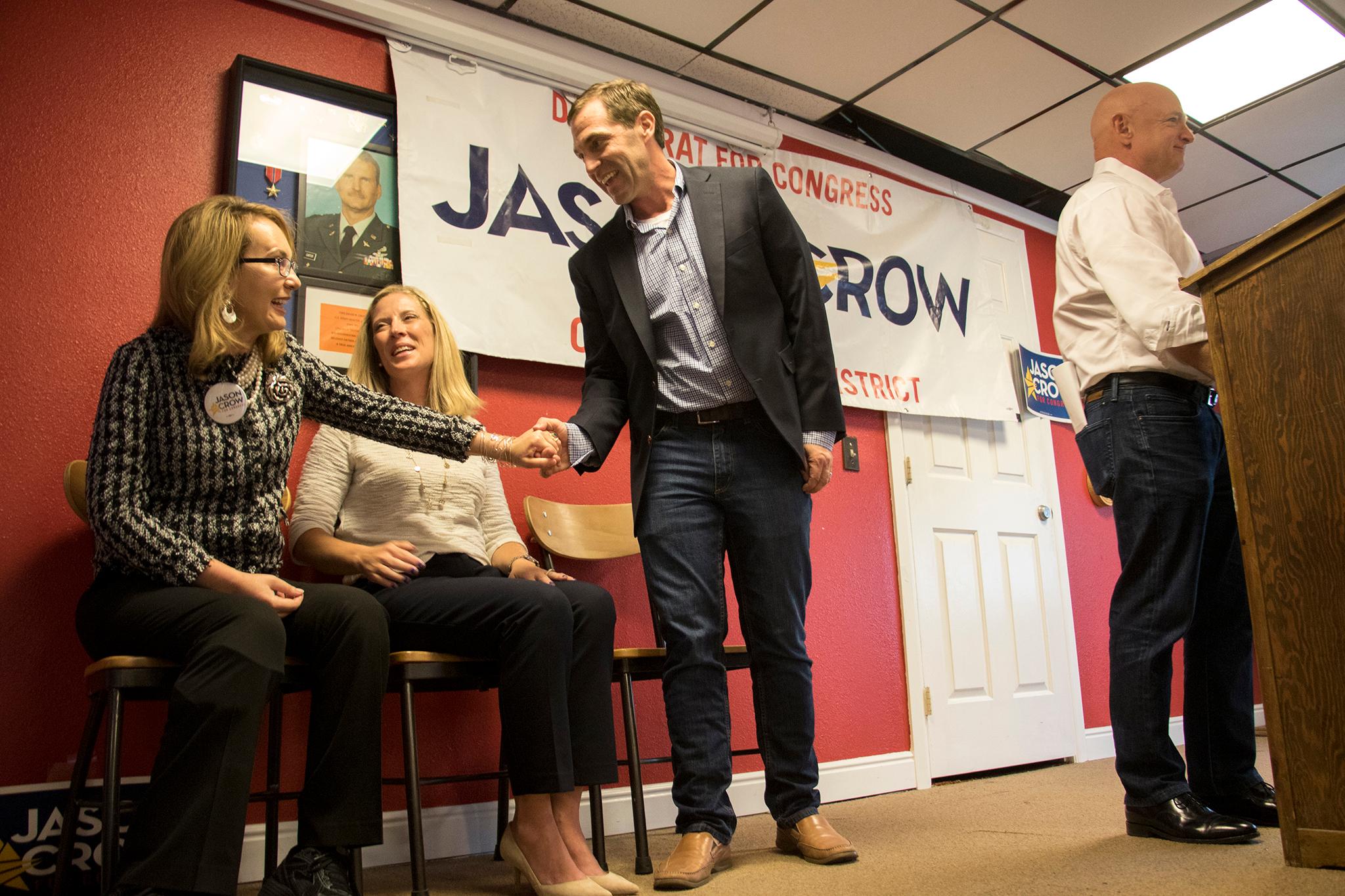U.S. Rep. Jason Crow is making headway on another campaign promise to address what he calls a public health crisis.
On Wednesday, Crow signed on as a co-sponsor for the Bipartisan Background Checks Act. The federal bill is similar to one passed by Colorado lawmakers in 2013 following the Aurora Theater Shooting in 2012 and would require background checks on all firearm purchases, including commercial and private sales.
Lawmakers believe it would help close so-called loopholes for firearms sold at places like gun shows.
The bill was introduced Tuesday, on the anniversary of the shooting incident that wounded then-Congresswoman Gabby Giffords and left six people dead. Since the shooting, Giffords has become an advocate for gun reform. She appeared alongside Crow during a campaign stop in Aurora last September.
Crow said in a phone interview with Denverite on Wednesday that he heard from people who were directly impacted by gun violence who "broke down" during his campaign events. A combat veteran, Crow said he's "used weapons of war at war and I know what they're capable of." Gun reform was among the issues on which Crow said he would try to lead.
He said it's the kind of bill he wants to lead on, calling it a "common sense" solution, adding it would help keep firearms out of the wrong hands.
"It doesn't impact in any way law-abiding citizens' right to protect their homes," Crow said. "It's something that we can do that will save lives."
He cited the nearly overwhelming support among Americans for universal background checks (Crow specified 90 percent support, which is mostly true). Currently, federal laws under the Brady Act impose background checks for gun purchases from licensed dealers. But Crow said it does not address potential sales made in private or at shows.
"This bill is intended to fix this problem," Crow said. He's aware he'll likely face a challenge in convincing his Republican colleagues to support the bill. "None of these things are easy ... We're going to have to work to build support within Congress."
Roll Call reported five Democrats and five Republican lawmakers signed on as original co-sponsors for the bill.













